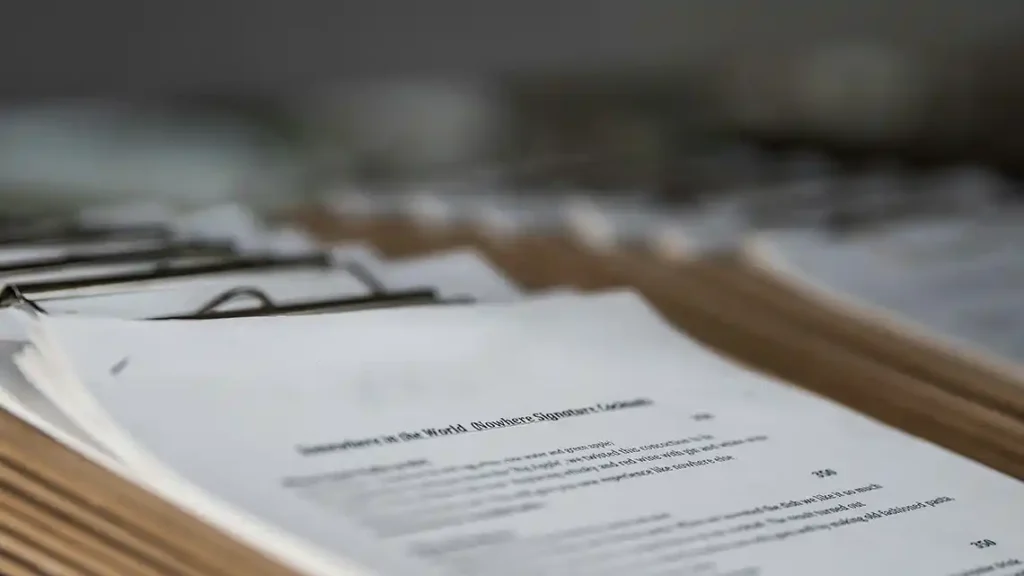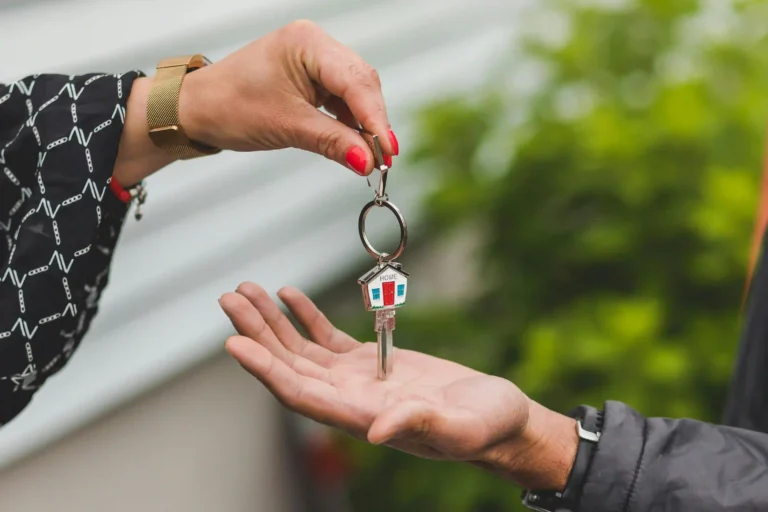
Your credit history doesn’t disappear when you move abroad — it just gets harder to access. In countries like the US, Germany, or Ireland, banks and landlords may review your financial track record from back home, especially if it’s supported by official documents or international partners like Nova Credit. If you can provide translated reports or show steady financial behavior through fintech tools, your foreign credit history could help you qualify for better terms on loans, leases, or phone plans.
📌 This article is part of the Financial Literacy in the EU: A Guide for Expats in 2025
Table of Contents
- Where It’s Used
- Documents to Prove Foreign Credit
- Countries That Accept Foreign Credit
- Tips for 2025: Building Credit as an Immigrant
- No or Bad Credit? Alternative Ways to Get Credit
- Personal Experience
- Conclusions
- FAQ
1. Where Foreign Credit History Is Used in 2025

If you’re moving to the USA, Germany, or the Netherlands in 2025, your foreign credit history may not follow you — but that doesn’t mean it becomes irrelevant. Understanding where credit history matters in the US and Europe helps you prepare for essential life steps like rental applications, opening a mobile phone contract, or even setting up a utility account.
Why Credit History Still Matters for Expats
Even though most US lenders and landlords don’t automatically recognize foreign credit reports, your creditworthiness still plays a major role. In 2025, many companies offer services to transfer credit scores, and landlords or service providers increasingly request alternative credit documentation.
📌 Real-life Examples: How Credit Impacts Daily Life
| Scenario | Impact if No US/DE/NL Credit | Options for Expats (2025) |
|---|---|---|
| Rental Application | Higher deposit or rejection | Use international credit passport, co-signer |
| Mobile Contract (e.g., T-Mobile) | Require prepaid plan or deny contract | Show foreign bank statements or use expat plans |
| Utility Account Setup | Large upfront deposit | Provide employment letter or foreign credit proof |
| Online Lending Platforms | Denied or high APR | Use services like Nova Credit (US), Bonify (DE), or Kredietpaspoort (NL) |
Using Foreign Credit in the USA and Europe
Using foreign credit in USA is easier in 2025 thanks to companies like Nova Credit that let you transfer your credit score from countries like the UK, Canada, India, Germany, and more.
For example:
- Landlords in New York or San Francisco increasingly accept Nova Credit reports.
- T-Mobile USA and Deutsche Telekom in Germany may allow contract applications with translated credit documents.
- Dutch platforms like Kredietpaspoort provide verified financial profiles for newcomers.
💡 Tip: Even if your credit doesn’t transfer directly, bring proof of responsible financial behavior — like paid loan statements or bank references — to boost your chances.
Build Credit as an Immigrant in 2025
To build credit as an immigrant:
- Apply for a secured credit card in the US or DE/NL with local banks.
- Use credit-builder loans available via fintech platforms like Self (US), Auxmoney (DE), or NL Credit Lab (NL).
- Get added as an authorized user on someone else’s card.
Where Credit History Matters in the US (Quick List)
- Rental Housing: landlords want to see credit or financial stability
- Utilities: gas, electric, and water companies assess risk
- Mobile phone plans: providers check payment reliability
- Car leases or loans
- Online shopping credit options
- Health insurance installments
Before applying for anything that relies on credit — from housing to a SIM card — you’ll need the right documentation. Let’s look at which documents to prepare and how to present them effectively in the next section.
2. Docs You’ll Need to Use Foreign Credit in the USA & EU (2025)

If you’re planning to use your foreign credit history in the USA or Europe, having the right documents is key. Whether you want to build credit as an immigrant, apply for a rental, or get a phone contract, you’ll need to prove your financial reliability.
Below is a checklist of documents that help demonstrate your creditworthiness abroad, especially when formal credit score transfer isn’t possible.
✅ Essential Documents to Prove Foreign Credit History
Use this checklist when preparing your documents for landlords, banks, lenders, or telecom companies.
| 📄 Document Type | Required Format | Notes |
|---|---|---|
| ✅ Credit report from your home country | PDF or printed, translated | Must be issued by official bureau (e.g. Equifax UK, Schufa DE) |
| ✅ Translated report | PDF + Notarized copy | Must include translation by certified translator |
| ✅ Proof of payments (loans, cards) | PDF or screenshots | Include at least 6–12 months of history |
| ✅ Bank reference letter | Original or PDF | On official letterhead, showing account history |
| ✅ Employment contract or offer letter | Shows income stability, often accepted in EU | |
| ✅ Rental references | PDF or email printout | From previous landlord, shows payment reliability |
📌 Recommended Format Guidelines
| Format | Acceptable? | Tip |
|---|---|---|
| ✅ Yes | Most commonly accepted, especially for banks and landlords | |
| Notarized Copy | ✅ Often | Required for official translations in the USA and Germany |
| Screenshots | ⚠️ Sometimes | Use only for backup if no PDF is available |
| Original Paper | ✅ If scanned | Must be clear and include issuing institution’s logo or seal |
⚠️ Common Mistakes to Avoid
- ❌ Submitting documents only in your native language — always include a translated report
- ❌ Missing dates or sender details — makes proof of payments less credible
- ❌ Using unofficial translation tools — can be rejected by banks or immigration offices
📌 Where to Use These Docs in 2025
- Rental applications (especially in NYC, Berlin, Amsterdam)
- Using foreign credit in USA through services like Nova Credit
- How to transfer credit score to local systems via recognized platforms
- Applying for credit options for expats 2025 in online banks (e.g., N26, Revolut, Chime)
These documents are essential in explaining your foreign credit history and starting to build credit as an immigrant in your new country.
🧾 Bonus Tip: Keep Digital & Physical Copies
🔒 Always store digital versions in secure cloud storage (Google Drive, Dropbox)
🗂️ Keep at least one printed, notarized set in case it’s required by immigration or landlords
Now that you know what documents to prepare, it’s time to understand how each country treats foreign credit history. Some places are credit-friendly, others may need more paperwork.
3. Countries That Accept or Support Foreign Credit History in 2025 🌍
In today’s globalized world, foreign credit history is no longer automatically discarded at the border. With tools like Nova Credit, the rise of cross-border credit scoring, and local regulatory shifts, many countries now offer credit options for expats in 2025 — or at least alternative pathways.
Below, we break down the top 3 countries where using foreign credit is most feasible, what systems exist, and how to start building credit as an immigrant.
🇺🇸 USA — Using Foreign Credit History in 2025
📌 Supports foreign credit via: Nova Credit, Self, Tomo, and local banks
How to transfer credit score:
- Nova Credit connects with international bureaus in India, Canada, UK, Mexico, and more.
- Accepted by major companies like American Express, Verizon, and landlords in NYC & SF.
- Some credit unions allow manual underwriting with translated reports and proof of payments.
Challenges:
- U.S. credit system is SSN-dependent, so newcomers often must build from scratch if no integration is possible.
- Most landlords still request a U.S. FICO or credit history.
| ✅ What Works | ❌ What Doesn’t |
|---|---|
| Nova Credit passport | Foreign reports without translation |
| Bank statements in USD | Home country bank letters only |
| Co-signer applications | Credit cards without SSN |
🇩🇪 Germany — Limited Use, Strong Alternatives in 2025
📌 Relies on Schufa, but open to financial proof from abroad
While Germany doesn’t have a centralized system for transferring foreign credit scores, you can still apply for loans, rentals, and accounts by showing:
- Translated reports from international bureaus
- Proof of on-time utility or rent payments
- Bank reference letters or employment contracts
Popular tools:
- Bonify for open banking data
- Score Kompass to track local credit once built
- Banks like N26 accept foreign documents for KYC and credit card pre-approval
⚠️ Note: Landlords often ask for a clean Schufa — which can only be built locally after registration.
🇨🇦 Canada — One of the Most Friendly Systems
📌 Actively supports cross-border credit scoring
How to transfer credit score:
- Canada has partnerships with Equifax US, UK, and India, allowing some history to port over.
- Scotiabank’s StartRight and BMO’s NewStart programs accept newcomers with international banking docs.
- Mobile providers (e.g. Rogers, Bell) allow service with proof of income + ID even without Canadian credit.
| Document Type | Accepted? |
|---|---|
| Foreign Equifax/TransUnion PDF | ✅ |
| Bank reference + translated report | ✅ |
| Screenshot from home country app | ⚠️ Maybe |
Note: Canada’s policies align with modern international bureaus and cross-border credit scoring standards, helping immigrants integrate faster in 2025.
⚖️ Quick Comparison: Credit Openness by Country
| Country | Accepts Foreign Credit | Requires Local Score | Best For |
|---|---|---|---|
| 🇺🇸 USA | ✅ With Nova Credit | ✅ Yes | Tech-enabled solutions |
| 🇩🇪 DE | ⚠️ Partially | ✅ Yes | Manual financial documentation |
| 🇨🇦 CA | ✅ Broadly supported | ❌ Not always | Smooth integration for expats |
Now that you know where your foreign credit history may be accepted, let’s explore how to maximize your credit options as an expat in 2025, even if you’re starting from zero
4. Tips for Building and Using Foreign Credit History in 2025

Moving to a new country and building credit as an immigrant can be challenging. However, with modern fintech tools and mobile-based reporting, you can use foreign credit in the USA, UK, or EU and start growing your credit profile faster than ever.
Here are actionable tips for 2025 to help you build credit in a new country, transfer your credit score, and access the best credit options for expats.
✅ Step 1: Leverage Your Foreign Credit History Smartly
- Use services like Nova Credit or Credit Kudos to transfer your credit score to the US, UK, or EU credit bureaus.
- Provide translated reports and proof of payments to landlords, banks, or telecom providers.
- Keep your foreign bank account statements handy as additional proof of financial responsibility.
✅ Step 2: Get a Secured Credit Card or Starter Credit Product
| Region | Recommended Options | Notes |
|---|---|---|
| 🇺🇸 USA | Secured cards (Discover it Secured, Self Visa Secured) | Reports to major credit bureaus |
| 🇬🇧 UK | Starter credit cards (Aqua, Capital One) | Help build credit even with no history |
| 🇪🇺 EU | Fintech credit options (N26 Credit, Revolut Credit) | Often linked to bank account usage |
💡 Tip: Use a secured card responsibly by making small purchases and paying off the balance monthly to boost your score.
📲 Step 3: Use Mobile-Based Credit Reporting & Fintech Tools
- Experian Boost (USA): Adds your phone, utility, and streaming payments to your credit report instantly.
- ClearScore (UK) and Bonify (Germany): Allow monitoring and improving your credit with tips and free reports.
- Many fintech apps in the EU let you share your rental payments and utility bills as credit-building data.
⚠️ Step 4: Avoid Common Pitfalls
- Don’t apply for multiple credit products at once — it can lower your score.
- Avoid missing payments, especially on your secured card or mobile contracts.
- Don’t ignore small bills — utilities and subscriptions matter for mobile-based reporting.
📌 Bonus: Open a Local Bank Account Early
Opening a local bank account in your new country is often the first step to building credit, as it helps verify your identity and income. Many banks now offer expat-friendly accounts with low fees and easy online setup.
Summary Table: How to Build Credit in a New Country (2025)
| Tip | Why It Helps | Tools/Examples |
|---|---|---|
| Transfer foreign credit score | Leverage your existing history | Nova Credit, Credit Kudos |
| Use a secured credit card | Establish local credit reporting | Discover it Secured (US), Aqua (UK), N26 Credit (EU) |
| Report utility/mobile payments | Boost credit with non-traditional data | Experian Boost, ClearScore, Bonify |
| Open a local bank account | Foundation for financial services | Local banks, fintech apps |
Even with the best efforts, some newcomers face no or bad credit when arriving. Don’t worry — next up, we’ll cover practical solutions to handle no credit history or poor scores in 2025.
5. No or Bad Credit? Alternative Ways to Get Credit in 2025
Starting fresh in a new country without a credit score or with bad credit can feel overwhelming. But don’t worry — there are credit options for expats 2025 that don’t rely solely on traditional credit reports. Understanding how to build credit as an immigrant even without a formal credit history is possible by using alternative credit data and simple proofs of financial responsibility.
📌 Can You Get Credit Without a Credit Score?
Yes! Many lenders and service providers in the USA, Poland, and Spain now accept alternative credit data, such as:
- Proof of income (pay stubs, employment contracts)
- Rental payment history
- Utility and mobile phone bills
- Bank statements and savings history
This is a growing trend in 2025, helping newcomers qualify for loans, apartments, or phone contracts despite lacking a traditional score.
✅ Simple Steps to Build Credit Without Credit History
| Step | What to Do | Why It Helps |
|---|---|---|
| 1. Open a local bank account | Use banks with expat-friendly options | Builds financial footprint |
| 2. Use alternative credit data | Submit proof of income, rent, utilities | Shows responsible payments |
| 3. Get a secured credit card | Deposit cash as collateral | Establishes tradeline |
| 4. Consider credit-builder loans | Small loans designed to build credit | Reported to credit bureaus |
| 5. Use fintech apps & mobile reporting | Apps like Experian Boost, ClearScore | Adds non-traditional payments |
⚠️ What to Avoid When You Have No or Bad Credit
- Applying for many credit products at once — this lowers your chances.
- Ignoring small bills — timely payment of utilities and rent helps build alternative credit.
- Relying solely on foreign credit history without local documentation.
📌 Regional Notes: USA, Poland, Spain
| Country | Alternative Credit Options | Key Lenders & Services |
|---|---|---|
| 🇺🇸 USA | Experian Boost, Self, Nova Credit | Self Credit Builder, T-Mobile |
| 🇵🇱 Poland | Local bank accounts + rental payment reports | mBank, ING, fintech like Cash Director |
| 🇪🇸 Spain | Utility bills + payroll slips accepted | BBVA, Santander, fintech startups |
🤝 We Understand the Challenge
Building credit from scratch or after setbacks isn’t easy. Take small steps, keep proof of timely payments, and use available tools. Your foreign credit history is valuable, but combining it with local alternative credit data will open more doors.
🔗 Learn more about how Credit Scoring works
🔗 Find out how to get a loan in a new country
Ready to see how others navigated the challenges? In the next section, we share a personal story of building credit abroad, with practical lessons and inspiration.
Personal Experience: How Maria Built Her Credit History in the USA and Europe
Maria moved from Spain to the USA in early 2024. Although she had a solid foreign credit history in Spain, she didn’t have a U.S. credit score, which made it difficult to rent an apartment or get a mobile phone contract.
Step 1: Using Foreign Credit History
Maria used the service Nova Credit to transfer her credit score from Spain to the USA. This helped her get pre-approved for an apartment in New York City and open a local bank account.
“Nova Credit made the process much easier because I could show my credit score even before I had a Social Security Number,” Maria shares.
Step 2: Opening a Local Bank Account and Getting a Secured Credit Card
After moving, Maria opened a bank account at a local bank, where she was offered a secured credit card — a card backed by a deposit. She used it for small purchases and always paid off her balance on time.
“This helped me start building credit locally and also made getting a mobile phone contract much smoother.”
Step 3: Using Alternative Data to Boost Her Credit
Maria signed up for Experian Boost, which adds payments for her phone and utility bills to her credit report, helping to improve her credit score faster.
The Result After One Year
Within 12 months, Maria qualified for an unsecured credit card, and her U.S. credit score rose enough to rent apartments without a security deposit and get better loan offers.
📌 Maria’s Tips for Newcomers
- Don’t hesitate to use alternative credit data — rent and utility payments count too.
- Get a secured credit card as soon as you open a bank account.
- Always pay bills on time — even small late payments can hurt your score.
- Use fintech tools to monitor and improve your credit regularly.
Conclusions: Building and Using Foreign Credit History Successfully in 2025
Navigating credit systems in a new country can be complex, but understanding how to use foreign credit in the USA, Europe, or Canada is key to financial stability and access to essential services in 2025. Whether you’re an expat or immigrant, leveraging your foreign credit history, combined with local financial tools, unlocks many opportunities.
Key Takeaways:
- Transferring your credit score using services like Nova Credit helps fast-track your access to credit products and rental agreements.
- Providing translated reports and proof of payments strengthens your credit applications.
- Opening a local bank account and using secured credit cards or credit-builder loans are effective ways to build credit as an immigrant.
- Utilizing alternative credit data — such as utility bills and rental payments — broadens your credit profile beyond traditional scores.
- Fintech tools like Experian Boost and mobile reporting apps make credit-building more accessible and transparent.
- Even with no or bad credit, there are practical steps to improve your financial standing and qualify for loans or contracts.
Regional Insights:
- In the USA, combining foreign credit with fintech innovations accelerates credit-building.
- In Germany and the EU, local regulations and fintech options provide unique credit pathways for expats.
- In Canada and other countries, cross-border credit scoring is gaining momentum, simplifying immigrant credit integration.
Final Thought
Building credit abroad is a journey — it takes time, patience, and smart use of resources. By understanding the evolving credit landscape in 2025 and applying these tips, you can confidently establish your financial footprint and unlock the best credit options for expats.
FAQ
What is foreign credit history and why does it matter?
Foreign credit history refers to your credit record from another country. It shows how you managed loans, credit cards, and payments abroad. Using this history can help you get credit faster in your new country by demonstrating financial responsibility.
Can I use my foreign credit in the USA?
Yes! In 2025, services like Nova Credit allow you to transfer your credit score from certain countries to the USA. This helps landlords, lenders, and service providers verify your creditworthiness without starting from scratch.
How do I transfer my credit score from another country?
To transfer your credit score, you usually need to work with international credit bureaus or platforms like Nova Credit. They verify your foreign credit data and translate it into a format recognized by U.S., UK, or EU credit agencies.
What are the best ways to build credit as an immigrant?
Start by opening a local bank account and applying for a secured credit card. Use fintech tools that report alternative payments like rent or utilities. Also, consistently pay bills on time to establish a strong credit profile.
What credit options are available for expats in 2025?
Expats can access secured credit cards, credit-builder loans, and fintech services like Experian Boost or ClearScore. Many lenders now accept alternative credit data, such as proof of income or rental payments, to approve credit applications.
📚 Also read:
Financial Literacy in the EU
Sources:









